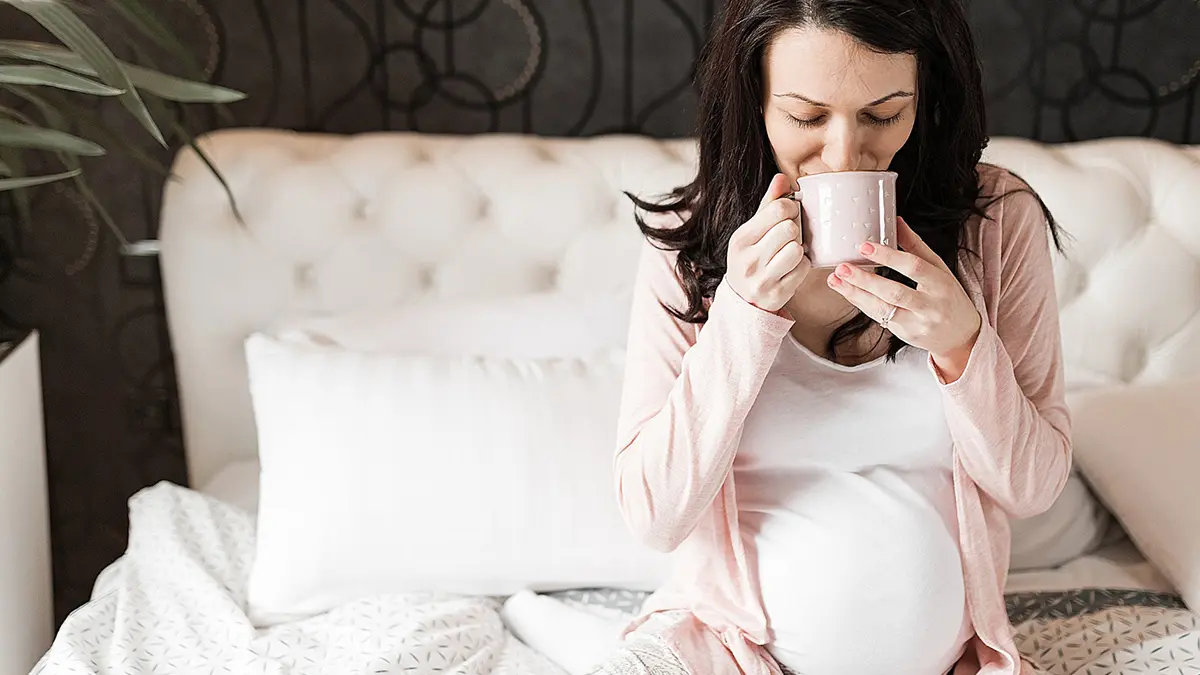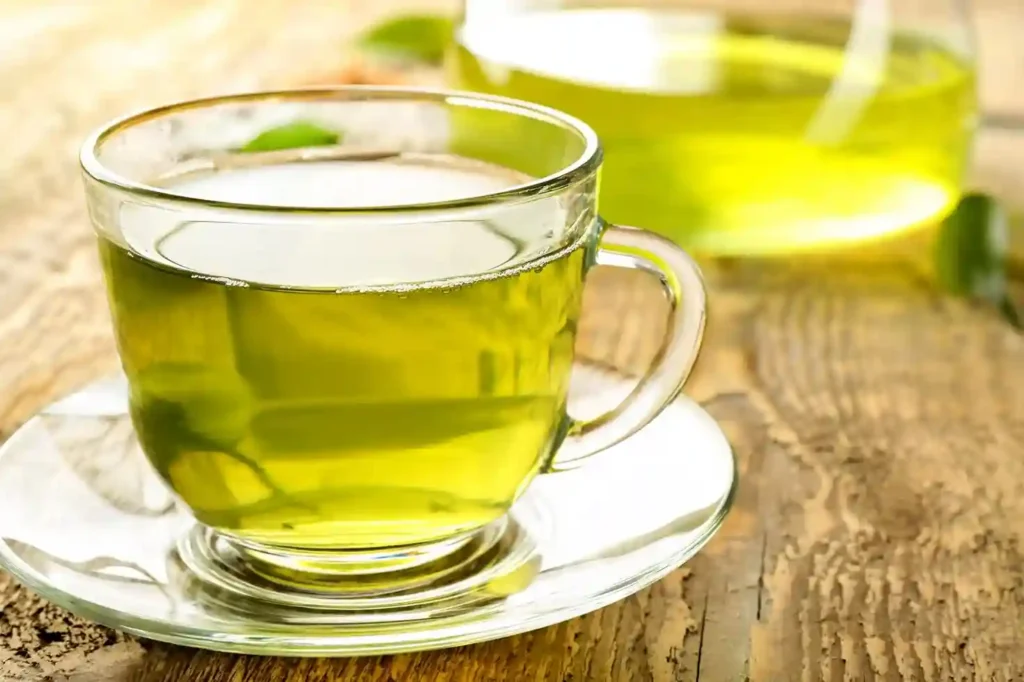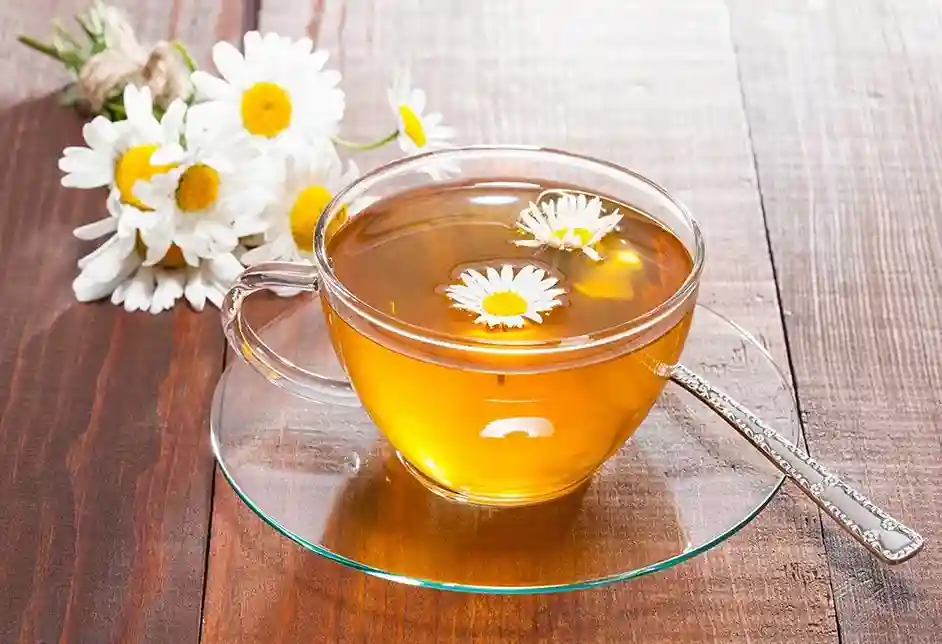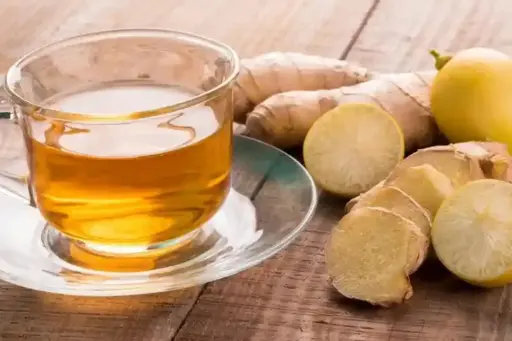
Are you a fan of tea and wondering whether it’s safe to indulge in it during your pregnancy? Naturally, you’d also like to know if there are any specific teas you should steer clear of. Given the cautionary advice about caffeine intake during pregnancy, it’s understandable that expectant mothers might hesitate to sip their beloved tea. So, let’s address the burning question: what are 5 pregnancy safe tea? And if it is, which teas are considered safe? Whether you’re craving the occasional herbal blend or sticking to your trusty English Breakfast tea, we’ve got all the information you need.
Can Pregnant Women drink Tea?
Yes, pregnant women can drink tea, but they should be mindful of the type of tea they consume and the amount of caffeine they intake. Some teas are considered safe to drink during pregnancy, such as green tea, chamomile tea, ginger tea, peppermint tea, and rooibos tea. However, some herbal teas have been linked to pregnancy complications, so it’s best to talk to a healthcare provider before trying any new teas during pregnancy. Additionally, pregnant women should be cautious of their caffeine intake and limit their consumption of black, green, and white teas. It’s recommended to drink tea in moderation during pregnancy
Is it safe to drink Herbal Tea during Pregnancy?
It is generally safe for pregnant women to drink herbal tea, but it’s important to be cautious and mindful of the type of tea consumed. Some herbal teas are considered safe during pregnancy, such as red raspberry leaf, peppermint, ginger, lemon balm, and rooibos tea. However, it’s recommended to limit the consumption of herbal teas to two cups per day during pregnancy.
It’s important to note that there is limited research on the safety of herbal teas during pregnancy, and some herbs can have negative effects on the baby. Additionally, some herbal teas should be avoided during pregnancy, such as parsley tea, sage tea, fennel tea, fenugreek tea, borage tea, and pennyroyal tea, as they have been associated with an increased risk of miscarriage and preterm labor.
What are 5 Pregnancy Safe Tea?
There are several pregnancy safe teas that can be consumed during this time. Here are five of them:
Green Tea: A Refreshing and Nourishing Choice

Green tea is a popular choice among tea enthusiasts, known for its refreshing taste and numerous health benefits. Luckily, green tea is generally considered safe to consume during pregnancy. Packed with antioxidants, green tea can support the immune system and help fight off free radicals. However, it is important to moderate your caffeine intake during pregnancy, so opt for decaffeinated green tea or limit your consumption to one cup a day.
Benefits of Green Tea During Pregnancy
- Provides a gentle energy boost without the jitters
- Rich in antioxidants that aid in cellular repair and protect against oxidative stress
- May help in reducing the risk of gestational diabetes and preeclampsia
- Supports healthy digestion and helps alleviate common pregnancy discomforts like bloating
Chamomile Tea: Relaxation and Soothing Aromas

Chamomile tea is renowned for its calming properties and delightful aroma. This herbal infusion can be a great choice for pregnant women looking to unwind and alleviate stress. Chamomile tea is generally regarded as safe during pregnancy when consumed in moderation. It is important to ensure that the tea is prepared from pure chamomile flowers without any additives or blends.
Benefits of Chamomile Tea During Pregnancy
- Promotes relaxation and aids in sleep, combating pregnancy-related insomnia
- Soothes an upset stomach and helps relieve morning sickness
- Acts as a natural remedy for minor aches and pains
- May assist in reducing inflammation and swelling
Ginger Tea: A Natural Remedy for Nausea

Ginger tea is widely recognized for its ability to combat nausea and ease digestion, making it a popular choice for pregnant women experiencing morning sickness. This warming and soothing tea is considered safe during pregnancy when consumed in moderate amounts. However, it’s always advisable to consult with a healthcare provider before incorporating any new herbal teas into your diet.
Benefits of Ginger Tea During Pregnancy
- Alleviates morning sickness and nausea
- Supports healthy digestion and relieves bloating and gas
- Acts as an immune booster and aids in preventing common illnesses
- Helps reduce muscle soreness and joint pain
Peppermint Tea: Refreshing and Digestive Support

Known for its invigorating aroma and cooling properties, peppermint tea can be a refreshing choice for pregnant women. Peppermint tea is generally considered safe during pregnancy, but it’s advisable to consume it in moderation and avoid excessive amounts due to its potential to relax the lower esophageal sphincter.
Benefits of Peppermint Tea During Pregnancy
- Relieves indigestion, heartburn, and bloating
- Soothes the stomach and aids in digestion
- Eases tension headaches and promotes relaxation
- May help alleviate symptoms of allergies and respiratory issues
Rooibos Tea: Nutritious and Caffeine-Free

Rooibos tea, also known as red tea, is a naturally caffeine-free herbal tea that is packed with essential minerals and antioxidants. It is a safe and healthy choice for pregnant women, providing a range of benefits to support their well-being throughout pregnancy.
Benefits of Rooibos Tea During Pregnancy
- Rich in antioxidants that support the immune system
- Contains minerals like calcium, magnesium, and zinc that aid in fetal development
- Helps relieve common pregnancy discomforts like insomnia and indigestion
- Hydrating and refreshing, making it a great alternative to caffeinated beverages
What are the Benefits of Drinking Tea during Pregnancy?
Here are some potential benefits of drinking tea during pregnant:
- Hydration: Staying hydrated is crucial during pregnancy, and tea can contribute to your fluid intake. Drinking tea can help maintain proper hydration levels, which is essential for the overall well-being of both the mother and the baby.
- Antioxidants: Tea, particularly green tea, is rich in antioxidants that can help combat free radicals in the body. Antioxidants are beneficial for cell repair and overall health. However, it’s important not to consume excessive amounts of green tea, as it contains caffeine.
- Calming effects: Certain herbal teas like chamomile and peppermint are known for their calming properties. They can help relieve stress, reduce anxiety, and promote better sleep. However, always check the safety of specific herbal teas during pregnancy, as some may be contraindicated.
- Digestive aid: Ginger tea can be helpful for relieving nausea and morning sickness during pregnancy. It has been used traditionally to alleviate digestive discomfort. However, consult with your healthcare provider before consuming ginger tea, especially if you have any underlying medical conditions.
- Variety of flavors: Pregnancy can sometimes lead to changes in taste preferences. Drinking tea can provide a range of flavors to help satisfy cravings and offer an alternative to other caffeinated beverages.
How much Tea is Safe to Drink during Pregnancy?
- Green tea: Green tea is considered safe to drink during pregnancy, as long as it is consumed in moderation. If it is your only source of caffeine, you can safely drink up to eight to 10 cups per day.
- Chamomile tea: Chamomile tea is an herbal tea and there haven’t been enough studies conducted to ensure its safety during pregnancy. Some doctors recommend limiting your herbal tea consumption during pregnancy. Chamomile tea contains anti-inflammatory agents, which may be dangerous during pregnancy. It depends on your medical history, how much you consume, and other factors. It’s important to remember that not all herbal teas are the same, and there are those that doctors tell their pregnant patients to stay away from. As with anything in your diet during pregnancy, discuss drinking chamomile tea with your doctor.
- Ginger tea: Ginger tea is generally considered safe to drink during pregnancy and may help relieve morning sickness. It’s generally considered safe to drink up to 4 cups (950 ml) of ginger tea per day while pregnant. However, ginger tea should not be consumed close to labor, as it may increase the risk of bleeding.
- Peppermint tea: Peppermint tea is considered safe to drink during pregnancy and doesn’t have any caffeine. There aren’t robust studies out there that show it to be dangerous to pregnant people or their developing babies. “It is absolutely safe to consume,” assures Cindy M. Duke, MD, OB/GYN, a fertility doctor and virologist.
- Rooibos tea: Rooibos tea is considered a pregnancy-safe herbal tea and a caffeine-free alternative to coffee, green tea, and black tea. It’s easy to brew at home, hot or cold, and may even give you an extra boost of antioxidants.
Which Teas should be avoided during Pregnancy?
here are some teas that should be avoided during pregnancy:
- Pennyroyal tea: Pennyroyal tea is known to cause miscarriage and should be avoided during pregnancy.
- Fennel tea: Fennel tea is associated with an increased risk of miscarriage and preterm labor and should be avoided during pregnancy.
- Fenugreek tea: Fenugreek tea is associated with an increased risk of miscarriage and preterm labor and should be avoided during pregnancy.
- Sage tea: Sage tea is linked to high blood pressure and miscarriage and should be avoided during pregnancy.
- Liquorice root tea: Liquorice root tea should be avoided during pregnancy as it can cause high blood pressure and water retention.
- Yarrow tea: Yarrow tea should be avoided during pregnancy as it can cause uterine contractions and bleeding.
- Dandelion tea: Dandelion tea is not recommended during pregnancy as it may cause uterine contractions and increase the risk of preterm labor.
- Earl Grey tea: Earl Grey tea should be avoided during pregnancy as it contains bergamot oil, which may cause uterine contractions.
- Oolong tea: Oolong tea should be consumed in moderation during pregnancy as it contains caffeine and may lower folic acid bioavailability.
- Black tea: Black tea should be consumed in moderation during pregnancy as it contains caffeine and may increase the risk of miscarriage.
Conclusion
During pregnancy, it’s crucial to make informed decisions about the foods and beverages we consume. While certain teas should be avoided due to potential risks, there are several pregnancy safe teas that can offer a range of benefits, from soothing properties to digestive support. Green tea, chamomile tea, ginger tea, peppermint tea, and rooibos tea are among the options you can consider incorporating into your pregnancy routine. Remember to always consult with your healthcare provider before making any significant changes to your diet or lifestyle during pregnancy. Enjoy your tea and embrace this beautiful journey!
Frequently Asked Questions (FAQs)
Can I drink Caffeinated Tea during Pregnancy?
While it’s generally advisable to limit caffeine intake during pregnancy, moderate consumption of caffeinated tea is considered safe for most expectant mothers. However, it’s important to monitor your overall caffeine intake from various sources and consult with your healthcare provider for personalized guidance.
Are there any Teas I should avoid during Pregnancy?
Yes, there are certain teas that should be avoided during pregnancy due to potential risks. These include herbal teas containing ingredients like black cohosh, pennyroyal, or yarrow, as they can stimulate contractions or cause other complications. Additionally, teas with high caffeine content, such as black, green, or oolong tea, should be consumed in moderation.
Can I drink Iced Tea during Pregnancy?
Yes, you can enjoy iced tea during pregnancy, but it’s important to ensure that the tea is properly brewed and doesn’t contain any additional additives or artificial sweeteners. Opt for homemade iced tea or choose commercial brands that specifically state they are safe for pregnancy.
Can Herbal Teas help with Pregnancy-Related Insomnia?
Certain herbal teas, such as chamomile tea or lavender tea, are known for their relaxing properties and may help promote better sleep. However, it’s advisable to consult with your healthcare provider before incorporating herbal teas into your routine, especially if you have any underlying health conditions.
How much Tea can I drink during Pregnancy?
It’s generally recommended to consume tea in moderation during pregnancy. Limiting your caffeine intake and choosing herbal teas or decaffeinated options can help ensure a safe and enjoyable tea-drinking experience. However, it’s essential to consult with your healthcare provider for personalized advice based on your unique circumstances.
Can I combine different types of Tea during Pregnancy?
While it’s generally safe to consume different types of tea during pregnancy, it’s important to be mindful of your overall caffeine intake and potential herb interactions. Mixing herbal teas or combining them with decaffeinated options can be a great way to enjoy a variety of flavors and potential benefits.












